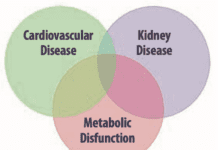Answer :Most algae-based omega-3 supplements do contain only DHA (docosahexaenoic acid) and not the other important omega-3 found in fish, EPA (eicosapentaenoic acid), although we did find one brand (MegaRed) that contains both. The independent effects of EPA and DHA are poorly understood, says Alice H. Lichtenstein, DSc, director of Tufts HNRCA Cardiovascular Nutrition Laboratory. Both EPA and DHA have benefits, so your best bet is to get both-but getting just DHA is better than nothing at all.
A new review of the evidence on omega-3s and health, published in the Journal of Nutrition, concluded that DHA and EPA each lowers triglyceride levels. Together, DHA and EPA are associated with lower risk of fatal cardiac events, and DHA is associated with lower risk of atrial fibrillation. EPA, but not DHA, is associated with lower risk of nonfatal cardiovascular events in some studies. Overall, the review noted, studies of EPA and DHA separately are relatively limited to date. Nonetheless, the present evidence suggests that EPA and DHA have both shared and complementary benefits, the reviewers concluded. Based on current evidence, increasing consumption of either would be advantageous compared to little or no consumption. Focusing on their combined consumption remains most prudent given the potential for complementary effects and the existing more robust literature on cardiovascular benefits.
Lichtenstein adds, It is important to note that there may be additional benefits of consuming fish rather than omega-3 supplements. Fish entres frequently displace other entrees such as steak or quiche which are higher in saturated fat and calories.























